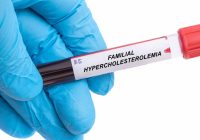Typhoid fever is a serious illness that travellers should be aware of when exploring new destinations. It is caused by bacteria found in contaminated food and water in areas with poor sanitation. When infected people do not practise proper hygiene, they can unknowingly spread the bacteria through their faeces or urine, leading to the contamination of food and water sources.
This increases the risk of contracting typhoid fever, which can have severe symptoms and complications if left untreated. Therefore, understanding the importance of the typhoid vaccine is crucial for travellers to protect themselves and enjoy a safe journey.
What Vaccines are Available for Typhoid Fever?
In the UK, two main vaccines are available: the Vi vaccine and the Ty21a vaccine.
- The Vi vaccine is administered as a single injection, while the Ty21a vaccine is taken as 3 capsules on alternate days.
- Combined vaccines for typhoid and hepatitis A are also available for individuals aged 15 and above.
What are Typhoid Vaccine Side Effects?
After receiving the typhoid vaccine, some people may experience-
- Temporary soreness, redness, swelling, or hardness at the injection site.
- About 1 in every 100 people may develop a high temperature.
- Less common side effects include abdominal pain, headache, nausea, and diarrhoea.
Severe reactions are rare for both types of typhoid vaccines.
How Long Does Typhoid Vaccine Last?
The typhoid vaccine offers protection for around 3 years. This means that once you receive the vaccine, your body builds defences against typhoid fever for about 3 years. During this time, you are less likely to become infected with the bacteria that cause typhoid fever. It’s important to keep track of the duration of protection offered by the vaccine to ensure that you are adequately shielded against the disease. Regular booster doses may be necessary to maintain immunity over time.
How Long Before Travel Should You Get Typhoid Vaccine?
It is advised to get the typhoid vaccine ideally one month before travelling to areas where typhoid fever is common. However, if required, the vaccine can be given closer to the travel date. This allows your body enough time to build immunity against the bacteria that cause typhoid fever, reducing the risk of falling ill during your trip.
Advice for Travellers to Prevent Typhoid Fever
Regardless of whether you’ve received the typhoid vaccine or not, it’s essential to take simple precautions when travelling in areas where typhoid fever is prevalent.
For instance:
- Only consume bottled water from properly sealed bottles or water that has been boiled recently.
- Refrain from consuming ice cream and avoid adding ice to your drinks.
- Do not consume uncooked fruits and vegetables unless you’ve washed them in safe water or peeled them yourself.
- Avoid consuming shellfish, seafood, and salads.
Why is Typhoid Vaccine Important for Travellers?
The typhoid vaccine plays a crucial role in protecting travellers from the risk of contracting typhoid fever during their journeys. While no vaccine is 100% effective, vaccination combined with preventive measures significantly reduces the chances of infection and ensures a safer travel experience.
Get Typhoid Vaccine at Intrigue Health
Typhoid vaccine protects from the potential risks of contracting typhoid fever during journeys to areas with inadequate sanitation. By prioritising vaccination and adopting preventive measures, travellers can minimise the risk of falling ill and experiencing disruptions to their adventures.
Your well-being is important, and a small effort in vaccination and precautionary measures goes a long way in ensuring a safe and enjoyable travel experience. So, click here to book travel vaccinations in Kent, Gravesend and Dartford.



